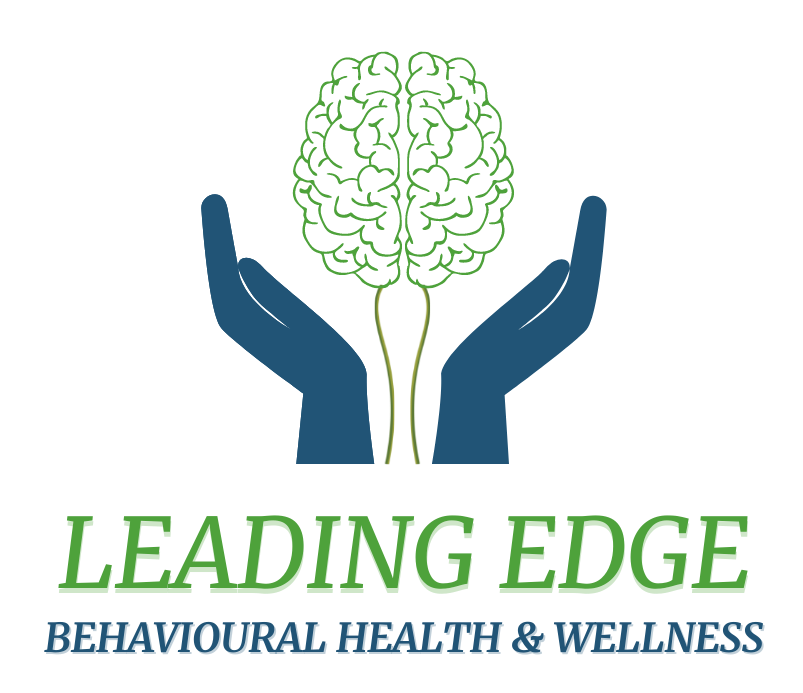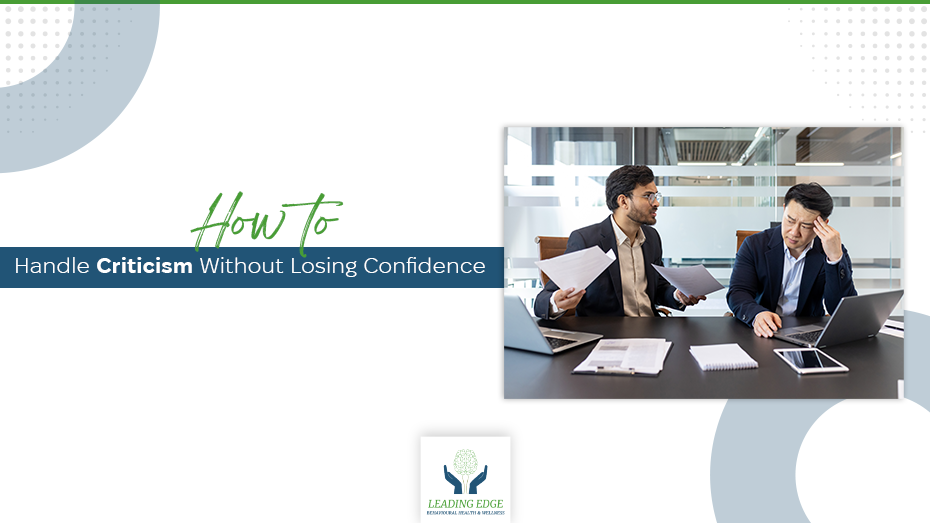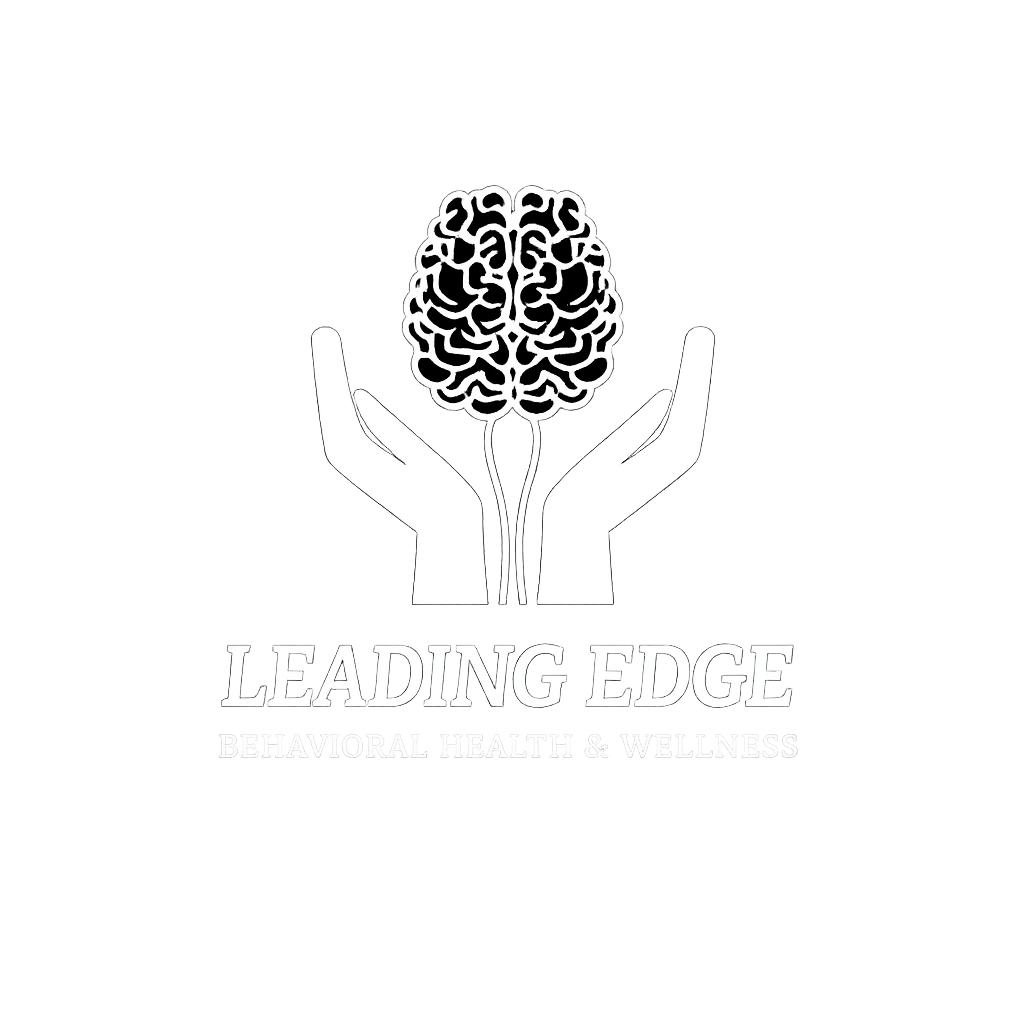Criticism can feel like a heavy load on your shoulders. Whether it comes from a friend, a teacher, or at work, hearing that you did something wrong can hurt. Yet, learning how to handle criticism without losing confidence is a skill that helps you grow. When you master it, you feel stronger, happier, and more ready to face new challenges.
At Leading Edge Behavioral Health and Wellness, we see that tough feedback helps everyone grow. Let’s walk through how to do just that.
What Is Criticism?
Criticism is someone telling you about something you might improve. It can be kind or harsh. Kind criticism helps you learn. Harsh criticism can feel mean or unfair.
- Kind Criticism: Gentle words that guide you.
- Harsh Criticism: Strong words that can hurt your feelings.
Knowing the difference helps you decide when to listen and let go.
Why Confidence Matters
Confidence is believing in yourself. It is like having a shield that protects you from hurt feelings. When you are confident, you:
- Try new things
- Speak up in class or at work.
- Make friends more easily.
At Leading Edge, we help individuals rediscover that inner belief. Our goal is to support your confidence from the inside out, even when life gets tough.
Steps to Handle Criticism
1.Pause and Breathe
- Stop for a moment.
- Take a slow, deep breath.
- Count to three in your head.
This short pause gives you time to calm down.
2.Listen Carefully
- Look at the person’s face.
- Hear the words they say.
- Say, “Thank you for telling me.”
Listening shows you are open to help. Even if the words sound harsh, there may be a helpful point inside.
3.Ask Questions
If you do not understand, ask:
- “Can you tell me more?”
- “What can I do to make it better?”
Curiosity helps change discomfort into growth. We encourage this in our sessions at Leading Edge Behavioral Health.
4.Find the Truth
Not all criticism is right. Think:
- Is there one small part that is correct?
- Can I learn from this?
Take what helps you grow. Leave the rest behind.
Turn Criticism into a Win
Once you find the helpful part, make a plan:
- Pick One Thing: Choose one small area to work on.
- Set a Goal: “I will practice this once every day.”
- Track Progress: Write down what you do.
- Celebrate Success: Give yourself a small reward when you improve.
This way, criticism becomes a path forward, not a roadblock.
Keep Your Confidence Strong
1.Talk to Yourself Kindly
Use simple, kind words in your mind:
- “I can try again.”
- “Mistakes help me learn.”
2.Remember Your Wins
- Keep a list of things you have done well. Read it when you feel down.
3.Surround Yourself with Support
- Talk to friends or family who cheer you on. Their kind words boost your confidence.
When Criticism Feels Mean
Sometimes, criticism is more about the person giving it than you. They might be upset or jealous. If it feels mean:
- Keep your distance for a bit.
- Talk to someone you trust.
- Focus on kind words and actions around you.
Helping Kids and Teens Learn This Skill
For parents and teachers, you can help children:
- Role-Play: Act out a scene where someone gives gentle feedback.
- Praise Effort: Say, “I saw how hard you tried.”
- Teach Self-Talk: Show them kind phrases to say to themselves.
Self-Esteem Issues and Support
Self-Esteem is how you value yourself. When someone is too hard on themselves, they may face Self-Esteem Issues. Leading Edge Behavioral Health and Wellness in Texas offers help for these challenges.
What We Do
- We give quality and complete healthcare services. We help each patient on their path to feeling well. We listen, care, and work hard to meet your needs.
Self-Esteem Issues
- We help you build belief in yourself. Our care plans guide you step by step. You learn tools to handle criticism with strength.
The Provider
- Oluwatobi is our nurse practitioner. She has 11 years of experience in mental health. She loves listening and caring for all ages. She treats you with kindness and understands different cultures. She is certified by the ANCC (PMHNP-BC) and works in Texas, Arizona, and New Mexico.
At Leading Edge, you are never alone. We walk with you as you grow confident and learn to handle criticism as a chance to learn.
Extra Tips and Topics
Mindset of Learning
- See yourself as a learner. Every comment is a chance to learn one more thing.
Celebrate Small Wins
- Even small steps are significant strides. Did you correct one mistake? Cheer for yourself!
Practice Kindness to Others
- When you give kind feedback, you model good criticism. Say, “Great try! Next time, you could…”
Self-Care Matters
- Eat well, sleep well, and move your body. Your mental strength increases when your physical health improves.
Conclusion
Criticism does not have to break you. By pausing, listening, and finding the helpful part, you turn a hard moment into a chance to grow. Keep your confidence strong with kind self-talk, happy reminders of your wins, and support from friends or professionals. If you face Self-Esteem Issues, Leading Edge Behavioral Health and Wellness is here for you. With caring experts like Oluwatobi, you learn to handle criticism without losing confidence, one step at a time. Contact us today.
Remember, every challenge is a chance to shine brighter. You’ve got this!
FAQs
How do I find the helpful part in criticism?
Listen slowly and pick out one small thing you can work on. Even in harsh words, there is usually a tip you can use.
How can I build my confidence after criticism?
Write down things you did well and read them often. Practice kind words to yourself, like, “I can try again.”



